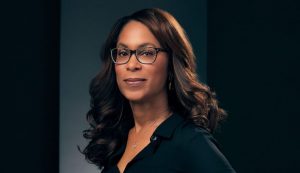
After more than 40 years of operation, DTVE is closing its doors and our website will no longer be updated daily. Thank you for all of your support.
New wave of content and staff cuts unveiled at Warner Bros. Discovery
Fallout from the US$43 billion merger of Warner Bros and Discovery continued this week with news that Warner Bros TV Group is cutting around a quarter of its staff. The latest move follows similar ructions in the company’s streaming business, with HBO Max axing around 14% of its staff and pulling dozens of shows this summer.

Channing Dungey
The decision to reduce headcount at production division WBTVG is partly the result of the current economic climate – but it is likely also linked to the decision to shift editorial priorities on the streaming side on the business. The rationale for cancelling the HBO Max shows was to create more room for Discovery’s content, which is gradually being migrated into a more broadly-defined HBO Max offering.
The cuts were laid out in memo to staff from WBTVG chair Channing Dungey. She said: “As many of you have already learned, some of our treasured colleagues will be leaving the company because of restructuring and realignment. This was strictly a business decision, made as thoughtfully and compassionately as possible by studio leadership. But understanding that doesn’t make this moment any easier.”
The cuts affect scripted, unscripted and animation departments: “We will also be closing Stage 13,” said Dungey, “which was founded in 2017 under the former Warner Bros. Digital Networks division as a studio for original digital shortform programming and has produced past series such as Special and It’s Bruno! for Netflix. Any Stage 13 projects in development will be absorbed within WBTVG.”
Also, the company is cutting the Warner Bros. Writers’ Workshop and Directors’ Workshop. “Both workshops have been instrumental in training the next generation of creative talent in the industry,” said Dungey. “While we will no longer have these formalised programmes in place, we remain committed to developing and mentoring emerging talent and preparing them for careers in television.”
Dungey concluded by saying: “For this kind of change to hit so close to home is incredibly difficult. But my hope is that these changes, made with an eye to a more focused business strategy, will strengthen and stabilise our company, maintain our great creative output, and better position us for continued future success.”


